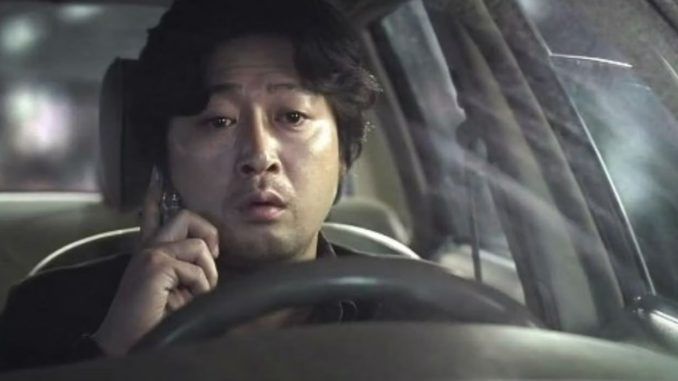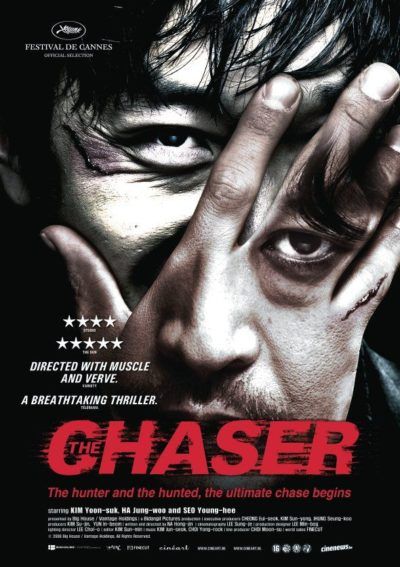
Rating: B
Dir: Na Hong-jin
Star: Kim Yoon-seok, Ha Jung-woo, Seo Young-hee, Jung In-gi
Mere weeks after this was released in South Korea, the Hollywood remake rights were sold to Warner Bros. for a million dollars. Nothing ever came of this version, to which Leonardo DiCaprio was linked. I think it’s probably for the best. There are a number of elements here would be troublesome. For instance, I can imagine a studio going, “Does the hero have to be a pimp?” By the time it was filtered through the studio sausage machine, the results would likely end up watered-down, when the strength of this is partly in its uncompromising harshness. It simply is not a typical Hollywood movie, and shouldn’t be turned into one.
For the hero is not just a pimp, Eom Joong-ho (Kim) is also an ex-cop with a very nasty temper. He’s been losing hookers from his stable: after initially thinking they’ve just run off, he realizes they all saw the same final client, Je Yeong-min (Ha). Eom sends one of his girls, Kim Mi-jin (Seo), to find Je’s address, but loses contact. Je is indeed a serial killer, who leaves Kim on the edge of death. Eom succeeds in finding Je, beating him up, and calling on old police pal Lee (Jung) to take over. However, there’s no physical evidence, with Je refusing to give up the location of his house, where Kim is still lying. The race is on foe Eom to rescue her, and Lee to find the necessary proof, before Je has to be released, his badly-damaged condition presenting a red flag to the prosecutor.
 Some aspects of this are similar to Midnight, another Korean movie about a serial killer. Both are set on the mean, dimly-lit streets, and do not exactly paint a glowing picture of Korean police and their competence. Here, the cops are at least somewhat sympathetic, their inability to do anything being largely down to external issues. For example, Lee is hamstrung and largely unable to help because he’s forced to prioritize an incident in which faeces was thrown at Seoul’s mayor. The Korean legal system appears to mean that even a suspect’s confession isn’t enough evidence to hold them, which seems… odd. Given this, Eom’s ability to operate without legal restraint – indeed, without much restraint of any kind – is helpful.
Some aspects of this are similar to Midnight, another Korean movie about a serial killer. Both are set on the mean, dimly-lit streets, and do not exactly paint a glowing picture of Korean police and their competence. Here, the cops are at least somewhat sympathetic, their inability to do anything being largely down to external issues. For example, Lee is hamstrung and largely unable to help because he’s forced to prioritize an incident in which faeces was thrown at Seoul’s mayor. The Korean legal system appears to mean that even a suspect’s confession isn’t enough evidence to hold them, which seems… odd. Given this, Eom’s ability to operate without legal restraint – indeed, without much restraint of any kind – is helpful.
Despite or because of this, it’s a largely bleak and downbeat experience, with one moment in particular having me thinking, “Well, that’s not going to happen in the remake.” There are a few points where coincidence does stretch things, e.g. Eom literally bumping into Je on the street, and the shoehorning in of Kim’s seven-year-old daughter feels a touch melodramatic. Yet there’s plenty here that does work, and the approach to violence is particularly laudable. The fight sequences between Eom and Je that are about as from Hollywood fisticuffs as imaginable, filled with flailing unpleasantness. This is exactly the way it should be depicted; between that and a true anti-hero, there’s a lot to admire here. “Enjoy” might be a stretch though.
